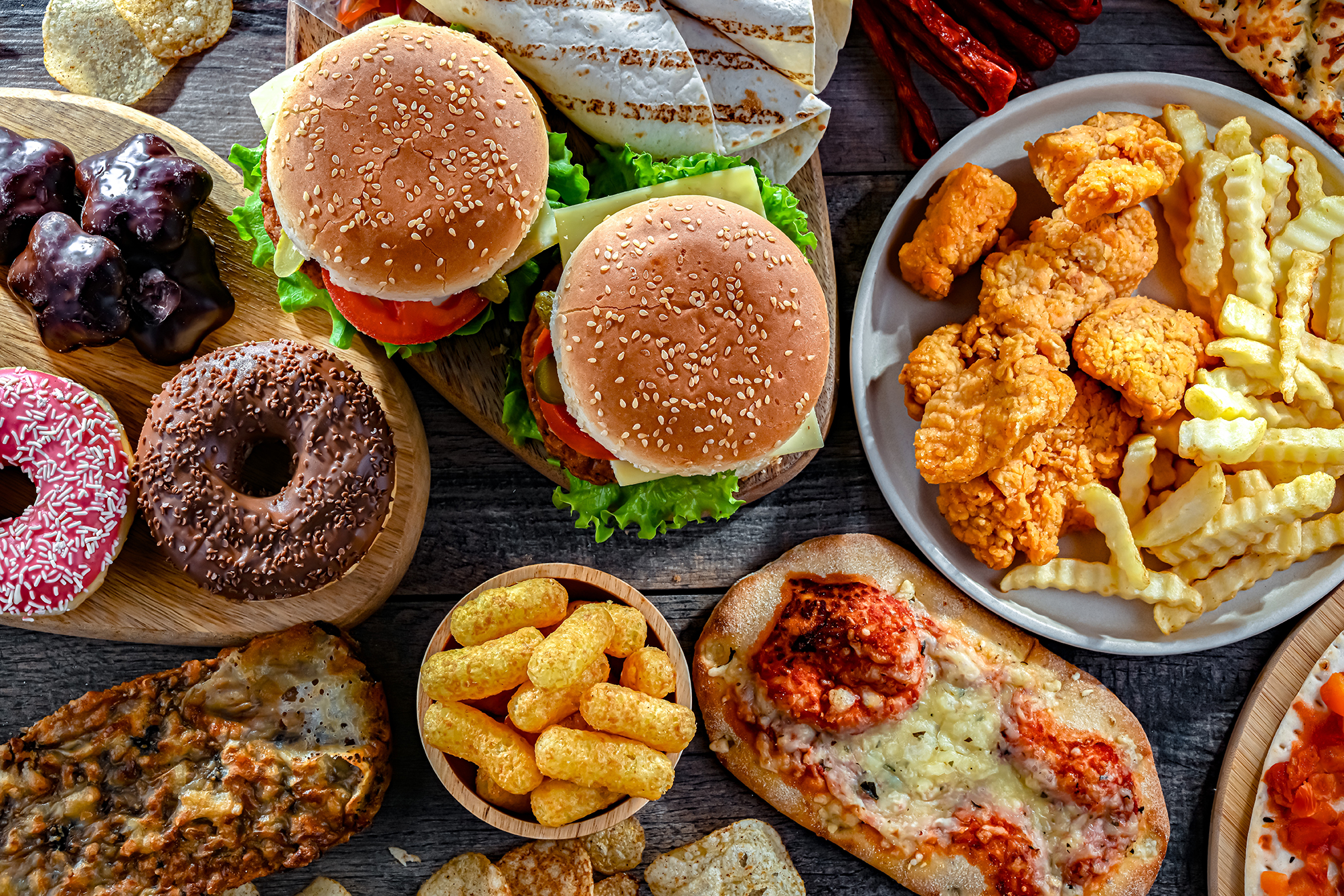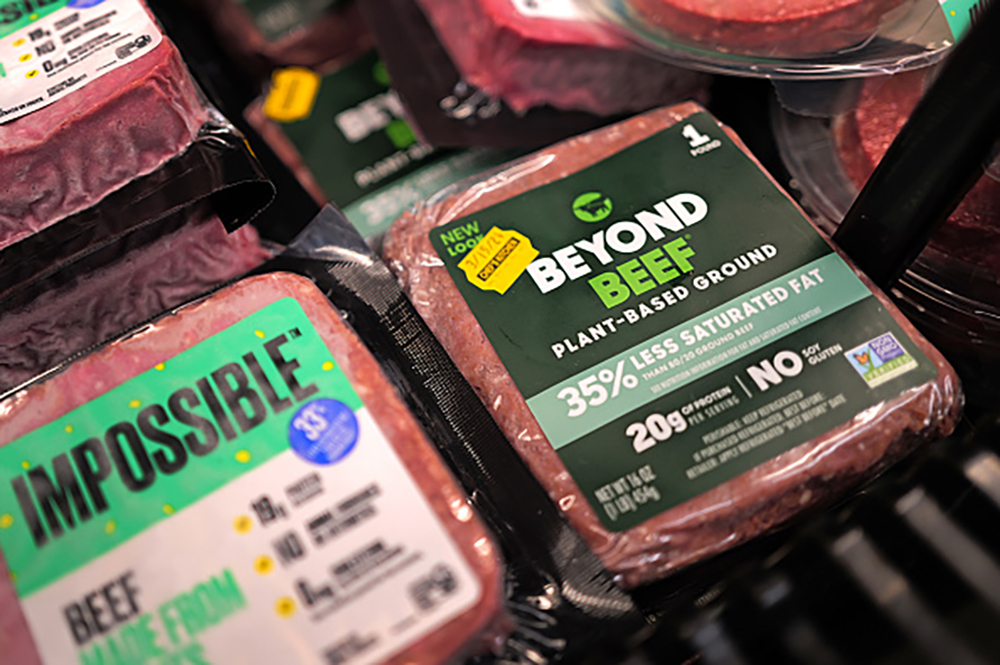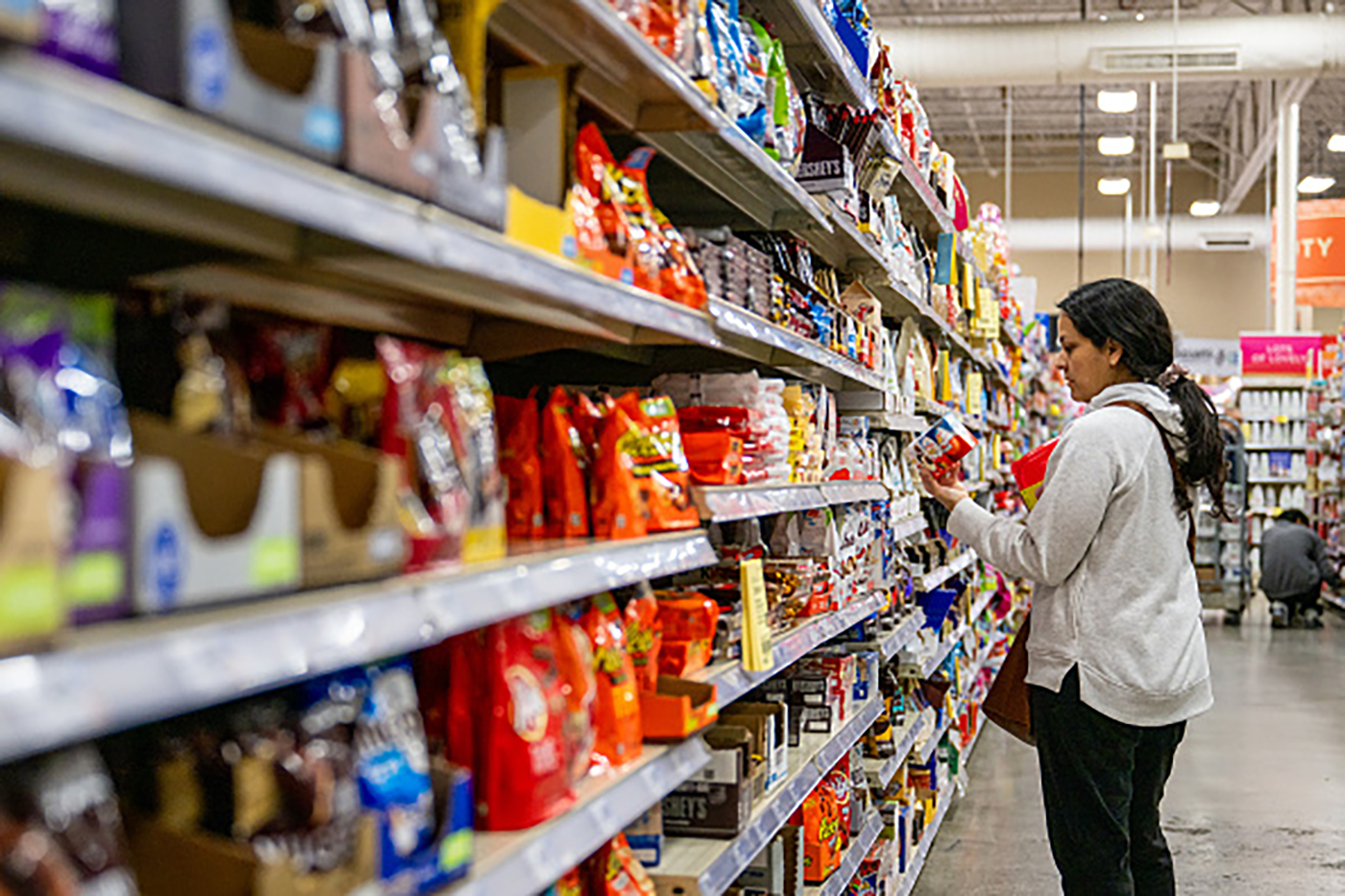Cover Story
Food fudge: the UPF debate remains unsettled
The topic of ultra-processed foods stirs emotions but arguments rage about the link between UPFs and poor health. Simon Creasey reports.

Few food industry topics have garnered as much media attention in recent years as ultra-processed foods.
The reason for the mainstream media’s interest in the foods, also known as UPFs, is twofold. Firstly, UPFs are ubiquitous. The shelves of grocery stores around the world are packed with UPFs and in some countries, like the UK and the US, more than half of the nation’s average diet is estimated to consist of UPFs. According to some research, this figure can rise to as much as 80% among people who are younger, poorer or from disadvantaged areas.
The second reason UPFs keep making headlines is a host of different studies have linked the foods to serious health conditions such as obesity, type two diabetes, heart disease and, potentially, cancers.
A study published in 2024 in the BMJ, directly linked UPFs to 32 harmful effects to health, and earlier this year a study undertaken in eight countries, including the UK and the US, and published in the American Journal of Preventive Medicine, suggested people who eat them may be at greater risk of dying early.
The statistics make for alarming reading but are UPFs as bad as some studies suggest? And, if they are, what should be done to deter people from eating them?
What are UPFs?
The term UPFs is a broad church of different items. UPFs are commonly associated with products such as ready meals, cereals, biscuits and fizzy drinks, which tend to be high in fat, salt and sugar and low in vitamins and fibre.
However, that’s not necessarily always the case, according to Dr Helen Croker, assistant director of research and policy at the World Cancer Research Fund.
“Some foods that would be classified as ultra-processed are not necessarily also high in fat salt and sugar,” she explains. “Take breads, vegetable-based foods, pasta sauces and yogurt – those sorts of things. Some of these foods are classified as ultra-processed but they are not traditionally considered a kind of ‘unhealthy’ food and they do have nutritional value in them. There’s a kind of scale of ultra-processed foods.”
Not all ultra-processed foods are created equal.
Dr Roberta Alessandrini, Physicians Association for Nutrition
It’s a view shared by Dr Roberta Alessandrini, director of the Dietary Guidelines Initiative at the Physicians Association for Nutrition.
“Not all ultra-processed foods are created equal,” says Alessandrini. “Certain subgroups like processed meat and sugary drinks are associated with adverse health outcomes, while research suggests other categories like plant-based meat, packaged wholemeal bread and baked beans could have a useful role to play in a healthy, balanced diet.”
At the other end of the ultra-processed foods spectrum are products like biscuits and cereals, which are typically high in fat, salt and sugar, undergo multiple industrial processes and often contain additives, sweeteners and chemicals.

Credit: YIUCHEUNG / Shutterstock
Research debate
However, none of the studies published to date have definitively proven that UPFs cause premature deaths due to the fact there are other contributory factors that relate to our health and wellbeing, such as overall diet, exercise levels and wider lifestyle.
These foods are not inherently unhealthy.
Rocco Renaldi, The International Food and Beverage Alliance
The International Food and Beverage Alliance (IFBA) is an organisation through which a clutch of multinational food and beverage manufacturers engage on health and sustainability issues. “Processed foods represent a diverse category including nutrient-fortified products like breakfast cereals, shelf-stable dairy alternatives, and affordable, nutrient-rich staples that help address global food and nutrition security. These foods are not inherently unhealthy,” secretary general Rocco Renaldi argues. “The evidence shows that what matters more to health outcomes are overall dietary patterns, lifestyle behaviours and socio-economic factors.
“Scientific consensus emphasises that no food is inherently ‘good’ or ‘bad’ based solely on its level of processing. Public health authorities like the UK’s Scientific Advisory Committee on Nutrition and the Nordic Nutrition Recommendations have acknowledged this. In fact, one-quarter of foods with high nutritional value that rank among the healthiest are classified, according to NOVA, as ‘ultra-processed foods’. Many processed foods can provide as much nutritious value as fresh foods and are a convenient and affordable way for people to get nutrients they need.”
While there is a growing body of evidence to suggest UPFs have a negative impact on health, the evidence is inconclusive as to just how detrimental these food products are.
“There’s quite a lot of research now but it’s still a very new area of research, bearing in mind that we’ve spent decades studying links between different aspects of diet and cancer, for example,” Croker at the World Cancer Research Fund says. “In recent times, there has been a big increase in the research and the research shows consistent associations between UPF intake and adverse health outcomes, including cancer.
The core question is, is there some specific harm from these foods and we don’t really have enough evidence right now.
Dr Helen Croker, World Cancer Research Fund
“However, what we don’t know currently is whether these adverse effects are over and above the impacts on health through eating foods which are classified as high in fat, salt and sugar – basically the way that we traditionally classify the nutritional value of food. We don’t really know whether there’s something about ultra-processing over and above that that’s harmful. The core question is, is there some specific harm from these [ultra-processed] foods and we don’t really have enough evidence right now, despite how it’s being reported in the media.”
Strike a balance
For some campaigners, the best approach isn’t to demonise UPFs and portray all of them as bad for us. It’s about ensuring people eat balanced diets and reduce their intake of UPFs.
“We need to be eating less of these [ultra-processed] foods because, where we are eating ultra-processed foods, that means we’re eating less of the foods that are good for us,” says Cathy Cliff, a policy adviser at The Soil Association, which recently published the results of an investigation that highlighted the lobbying efforts of manufacturers of ultra-processed products to block discounts on healthy foods in the UK.
“It’s about rebalancing the diet. It’s difficult to avoid them because ultra-processed foods are everywhere. I’m not suggesting people cut them out of their diet completely, or that they should be banned but we need help from government to eat less of them.”
Dr Hannah Brinsden, head of policy and advocacy at The Food Foundation, concurs. “At the same time as consuming high amounts of UPFs, people are also consuming too little minimally processed foods such as fruit, vegetables and pulses. There is a real need to shift the balance of our diets and increase consumption of healthier minimally processed foods if we are to improve health,” she says.

Credit: Scott Olson / Staff / Getty Images
One option could be to get people to switch out some harmful UPFs for healthier alternatives, such as plant-based foods.
The Good Food Institute Europe – an organisation that's an advocate for alternative proteins – and The Physicians Association for Nutrition recently co-authored a guide they say will help healthcare professionals, policymakers and NGOs navigate the conversation around UPFs and plant-based meat, which is often classified as a UPF.
Amy Williams, nutrition lead at The Good Food Institute Europe, says: “There is no silver bullet when it comes to building a better food system but, given how easy it is to swap processed meat for plant-based meat, this could be one approach to helping make healthier, more sustainable choices easier, alongside broader initiatives to increase consumption of fresh vegetables, legumes and whole grains.”
Alessandrini, who co-authored the guide, adds: “Different processes have different health associations and the specifics are important. Some forms of processing, which remove important nutrients or add high levels of salt, fat and sugar, can be harmful but this is not the case across the board.
“When it comes to plant-based meat, certain methods of processing may enhance protein quality, boost how much of the raw material’s nutrients can be absorbed by the body and enable products to be fortified with important micronutrients.”
Consumer confusion
The problem is there is a lack of awareness and knowledge among the general public as to what’s ‘good’ and what’s ‘bad’ for them and this is where governments and regulatory bodies need to step in, says Williams.
Public health bodies should provide clearer dietary guidance to help people select healthier choices based on nutritional quality, rather than processing levels.
Amy Williams, The Good Food Institute Europe
“National public health bodies should provide clearer dietary guidance to help people select healthier choices based on nutritional quality, rather than processing levels – following the example set in the Netherlands, where nutrient-rich plant-based meat products are included in official dietary recommendations.”
While this approach sounds good in theory, it’s not necessarily as straightforward as it sounds because in some countries – like the UK – a specific UPF definition is not embedded within the government’s nutrition and health policy.
“As more evidence becomes available, there may be opportunities to strengthen the UK government definition of unhealthy food, for instance by including certain additives and sweeteners alongside fat, sugar and salt and increasing the emphasis on promoting minimally processed foods,” says Brinsden at The Food Foundation.
She says there are “several policy options” to help consumers “access healthier diets”, including aligning public sector procurement to goals on health and taxes on manufacturers to encourage reformulation and raise revenue to make healthier foods more affordable.

Credit: Brandon Bell / Staff / Getty Images
Renaldi at The International Food and Beverage Alliance cautions against demonising all UPFs and argues regulation must be evidence and science-based. “Instead of dismissing processed foods as a whole, public health strategies should prioritise reformulation and innovation,” he says. “For example, reducing sodium in packaged foods, while fortifying them with essential micronutrients, has been shown to improve public health outcomes.
“Overall, policies should guide consumers toward balanced diets that incorporate both fresh and processed foods, rather than demonising ‘UPFs’.”
While there is a growing body of evidence to suggest consuming certain UPFs in high volumes could potentially be harmful to people’s health, it is clear more work needs to be done to determine which foods people should avoid and which can be consumed in moderation as part of a balanced diet.
“Diet affects gut health – period,” says gastroenterologist Samantha Nazareth. “There’s no talk surrounding digestive health without mentioning diet and lifestyle choices. In terms of ultra-processed foods, where I find there is a lot of confusion is labelling foods as ‘good’ versus ‘bad’. I don’t subscribe to that viewpoint. There are some processed foods that can be viewed as nutritionally useful in an overall balanced diet.”
As a result, Nazareth says that, from a policy perspective, transparency is key. “A consumer needs to have clear labelling so they can have all the data to make an informed decision when purchasing a product,” she says. “Commonly consumed products should be reformulated to reduce harmful additives.”
The debate surrounding UPFs isn’t going to go away and it appears increasingly likely governments and regulatory bodies will start to intervene. As a result, UPFs look like they will continue to hog the media limelight for some time to come.